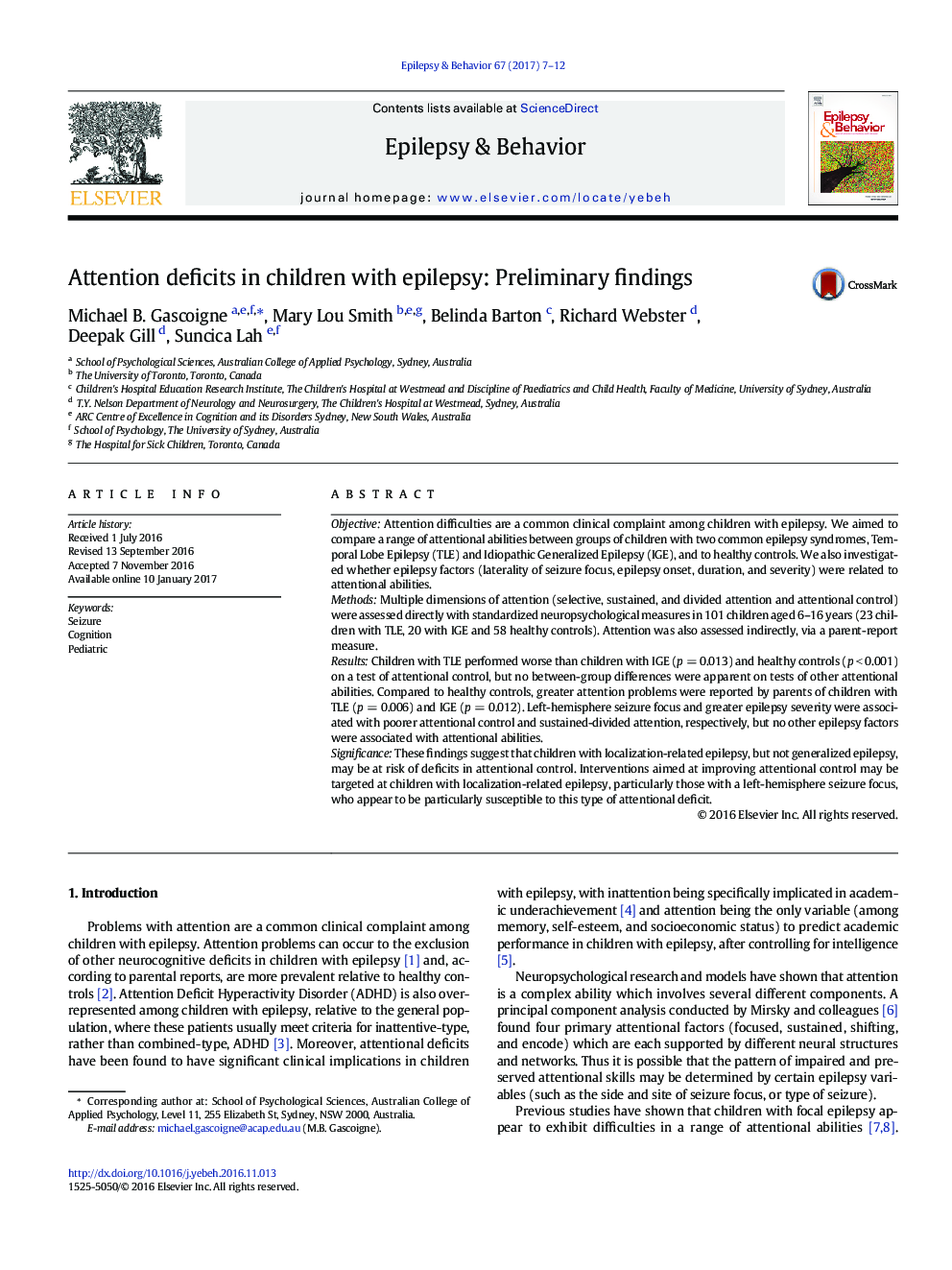| Article ID | Journal | Published Year | Pages | File Type |
|---|---|---|---|---|
| 5628465 | Epilepsy & Behavior | 2017 | 6 Pages |
â¢Attentional abilities compared between children with TLE, IGE, and healthy controlsâ¢No between-group differences in sustained, selective or divided attentionâ¢Attentional control worse in patients with TLE than in those with IGE or controlsâ¢Poor attentional control associated with left-hemisphere seizure focus in TLE
ObjectiveAttention difficulties are a common clinical complaint among children with epilepsy. We aimed to compare a range of attentional abilities between groups of children with two common epilepsy syndromes, Temporal Lobe Epilepsy (TLE) and Idiopathic Generalized Epilepsy (IGE), and to healthy controls. We also investigated whether epilepsy factors (laterality of seizure focus, epilepsy onset, duration, and severity) were related to attentional abilities.MethodsMultiple dimensions of attention (selective, sustained, and divided attention and attentional control) were assessed directly with standardized neuropsychological measures in 101 children aged 6-16 years (23 children with TLE, 20 with IGE and 58 healthy controls). Attention was also assessed indirectly, via a parent-report measure.ResultsChildren with TLE performed worse than children with IGE (p = 0.013) and healthy controls (p < 0.001) on a test of attentional control, but no between-group differences were apparent on tests of other attentional abilities. Compared to healthy controls, greater attention problems were reported by parents of children with TLE (p = 0.006) and IGE (p = 0.012). Left-hemisphere seizure focus and greater epilepsy severity were associated with poorer attentional control and sustained-divided attention, respectively, but no other epilepsy factors were associated with attentional abilities.SignificanceThese findings suggest that children with localization-related epilepsy, but not generalized epilepsy, may be at risk of deficits in attentional control. Interventions aimed at improving attentional control may be targeted at children with localization-related epilepsy, particularly those with a left-hemisphere seizure focus, who appear to be particularly susceptible to this type of attentional deficit.
